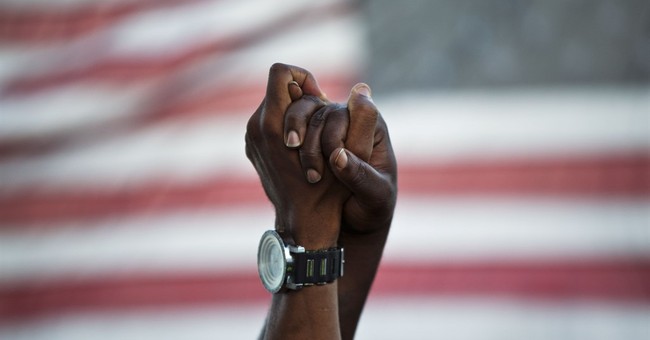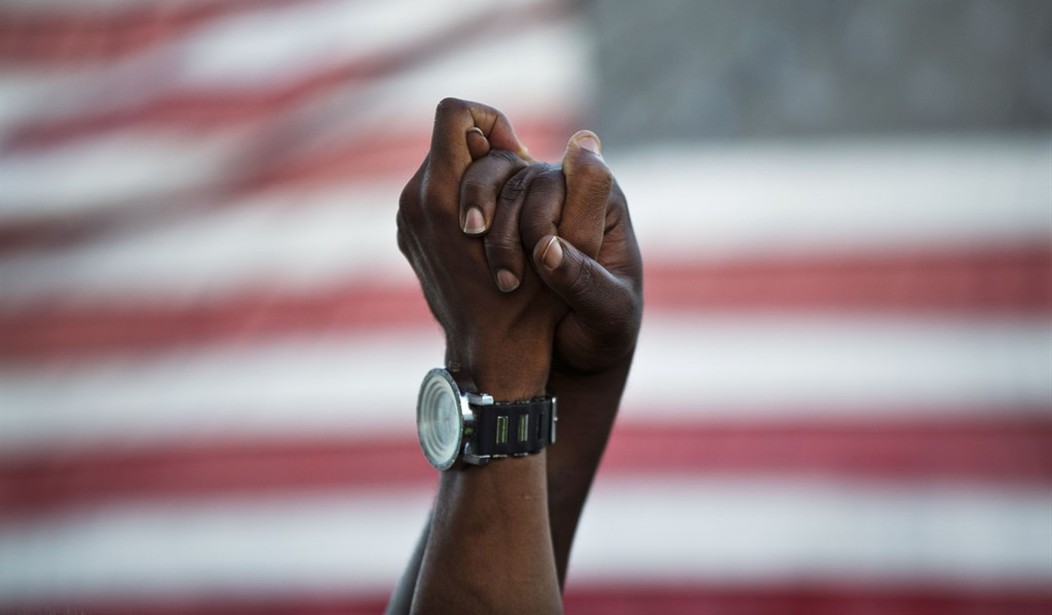
When the news broke of the NFL’s plan to play “Lift Ev’ry Voice and Sing” during the first week of the season, it elicited outrage among conservatives, many of whom believe that the inclusion of the song is racist. While there is plenty to criticize in the NFL’s move, it is also appropriate to clear up the misconceptions about the song that many are holding.
Several high-profile Republicans and conservative blue checkmarks on Twitter have railed against the inclusion of the song, some even accusing the NFL of racism. Others have erroneously assumed that “Lift Ev’ry Voice and Sing” is somehow intended to replace the Star-Spangled Banner. Some have suggested that the song’s “black national anthem” nickname indicates that blacks wish to be segregated in their own nation and that the left concocted this as a way to sow division.
None of this is true.
An understanding of the history of the song reveals that it has nothing to do with segregation or bigotry. In fact, it is a piece of music that illustrates the struggle that black Americans were facing shortly after the Reconstruction era. The song also highlights the struggle of a nation to live up to the values upon which it was founded. It is an integral part of black history, which means it is a part of American history.
In 1899, James Weldon Johnson, a member of the NAACP, wrote the lyrics to “Lift Ev’ry Voice and Sing” as a poem. He gave the poem to his brother John Rosamond Johnson, who was a classically-trained musician, to put the words to music. The song was first performed in public by a group of 500 children at a segregated school in Jacksonville, FL, to honor the birthday of President Abraham Lincoln.
The Weldon brothers wrote the song at a significant time in American history. Slavery had been abolished, but the rise of Jim Crow, which replaced the “peculiar institution,” threatened the lives of black Americans, especially in the south. The song became a rallying cry for black folks, a call to solidarity and unity in the face of racial oppression. Even today, it stands as a part of black culture.
In 1905, black activist Booker T. Washington endorsed the piece, and it became the official song of the NAACP in 1919 when it was given the “Black National Anthem” moniker. The song was commonplace in black communities all over the country and was routinely sung in black churches. But the song also crossed racial lines.
Timothy Askew, an English professor at Clark Atlanta University, told NPR that, “Even during days of segregation, there were Southern white churches … who wrote to James Weldon Johnson and who said, ‘We are singing that song you called the black national anthem.'”
The professor continued, noting that, “People in Japan, South America, people around the world, particularly during the ’30s and ’40s, were singing this song.”
When you read the lyrics to the song, which I have included at the end of this article, you will see that there is nothing divisive about “Lift Ev’ry Voice and Sing.” It is a call for liberty. It is a heartfelt plea to God to lead people out of dire circumstances and into freedom. Put simply, this is a conservative song.
The song’s moniker, “The Black National Anthem,” has nothing to do with segregation, rather, it is an acknowledgment of the song’s role as a call to unity against bigotry. It is not a call for black people to have two separate Americas, as some have suggested. On the right, some argue that the designation should no longer be used as we are not living under Jim Crow any longer.
But the name itself is not some leftist scheme intended to divide — the nickname was applied to the song 100 years ago, and it is a piece of history. Taking it out would be akin to rewriting “The Adventures Of Huckleberry Finn” and removing the “N” word because it is offensive.
Many of us adhere to the notion that black history is American history. If this is the case, there is nothing wrong with including a piece of American history in some NFL games. As stated previously, it is not about replacing the Star-Spangled Banner; playing the song for one week hardly constitutes replacement.
Yes, the NFL is pandering. They are engaging in the same “virtue signaling for dollars” that other major corporations are doing. But we can criticize the paternalism while acknowledging a beautiful piece of American history.
If you want to hear a song, this video is a pretty good rendition. Below are the lyrics.
Lift ev’ry voice and sing,
‘Til earth and heaven ring,
Ring with the harmonies of Liberty;
Let our rejoicing rise
High as the list’ ning skies,
Let it resound loud as the rolling sea.
Sing a song full of the faith that the dark past has taught us,
Sing a song full of the hope that the present has brought us;
Facing the rising sun of our new day begun,
Let us march on ’til victory is won.
Stony the road we trod,
Bitter the chastening rod,
Felt in the days when hope unborn had died;
Yet with a steady beat,
Have not our weary feet
Come to the place for which our fathers sighed?
We have come over a way that with tears has been watered,
We have come, treading our path through the blood of the slaughtered,
Out from the gloomy past,
‘Til now we stand at last
Where the white gleam of our bright star is cast.
God of our weary years,
God of our silent tears,
Thou who has brought us thus far on the way;
Thou who has by Thy might
Led us into the light,
Keep us forever in the path, we pray.
Lest our feet stray from the places, our God, where we met Thee,
Lest, our hearts drunk with the wine of the world, we forget Thee;
Shadowed beneath Thy hand,
May we forever stand,
True to our God,
True to our native land.
Let me know what you think in the comments below.
Follow me on Twitter: @JeffOnTheRight













Join the conversation as a VIP Member